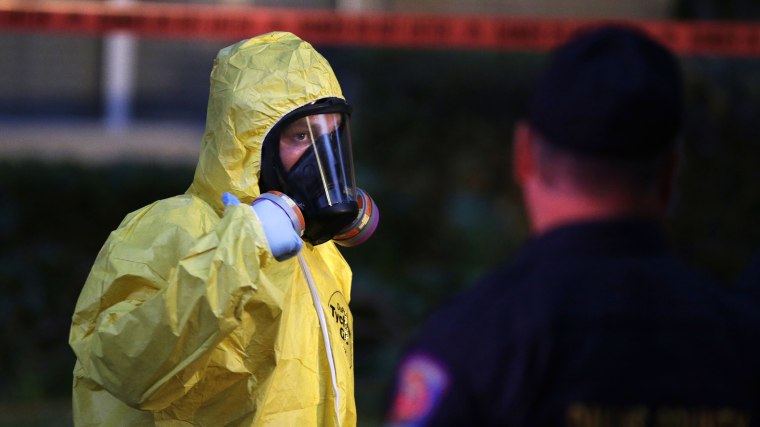Occasionally, political figures try to redefine a word or phrase that already has a very specific meaning. Senate Republicans, for example, last year tried to argue that "court packing" refers to confirming judicial nominees that the GOP doesn't like. It was gibberish -- court packing already refers to a specific practice, and this wasn't it.
Similarly, "October Surprise" refers to a specific campaign tactic, though some of the Beltway media is trying to change that, too. Here's Chris Cillizza yesterday:
Wednesday's news that not only had a second health-care worker in Dallas been infected with the Ebola virus but that she had also traveled on a commercial airliner the night before showing up at the hospital with a low-grade fever takes the story -- and its potential political impact -- to an entirely new level. [...] Add it all up and you are left with this conclusion: Ebola is the October surprise of the 2014 midterms.
This came on the heels of a related piece from The Hill (via Dylan Scott).
Ebola has become the October surprise of this year's midterm elections, with Democrats and Republicans doing battle over everything from restrictions on travel to the disposal of a victim's remains.
Actually, an October surprise is defined as "any political event orchestrated (or apparently orchestrated) in the month before an election, in the hopes of affecting the outcome." The idea is, politicians and their team come up with some blockbuster story, they hold it until the last minute, and then they make a big political splash, just as the election reaches the finish line.
According to the Wikipedia entry on this, the phrase originated 40 years ago, when Nixon's team, just 12 days before the 1972 elections, announced the apparent end of the war in Vietnam. The entry added, "Since that election, the term 'October surprise' has been used preemptively during campaign season by partisans of one side to discredit late-campaign news by the other side."
With this in mind, under no circumstances is the Ebola virus an October surprise. That said, this line of thought raises a larger concern about the politicization of ... everything.
Jonathan Martin had a piece yesterday asking, "Will the Ebola crisis play a role in the fall's elections?" It's not an absurd question -- partisans are clearly eager to exploit the deadly virus to advance their careers and undermine confidence in the White House -- but can we pause to note the absurdity of the circumstances?
As the gap between parties and ideologies in the U.S. reaches unprecedented levels, suddenly every possible crisis is seen through a truly bizarre lens.
What are the political implications of a natural disaster? What are the electoral effects of a grandchild? What are the partisan consequences of a terrorist attack? How can the outbreak of a deadly virus in West Africa help Republicans take control of the Senate?
Is it an October surprise? Can it be compared to Katrina? How about Watergate?
The Hill published a 1,000-word piece this morning arguing, in all seriousness, that Ebola "has become an anchor threatening to sink the Obama presidency." The column insisted that it's time for Democrats to "consider the political ramifications" of a public-health crisis.
Because considering the public-health ramifications of a public-health crisis clearly isn't enough. A virus is our new political football, and some want to know whether Obama and his team are prepared to throw it effectively.
The White House announced yesterday that the president has canceled some upcoming political events in order to focus on the Ebola response, which coincided with Obama calling a cabinet meeting. Watching this unfold, I thought to myself, "Well, at least reporters and Republicans will be pleased with the 'optics,'" at which point I had to remind myself that concern for "optics" is too often a superficial and misguided exercise, distracting from real, substantive work.
To see Ebola as a political theater is to lose sight of what actually matters here.
